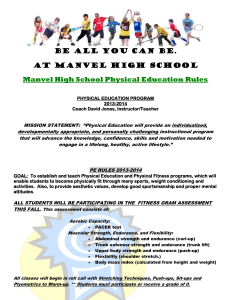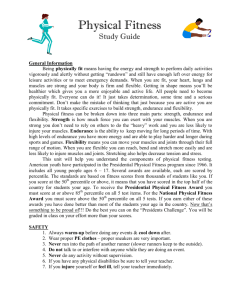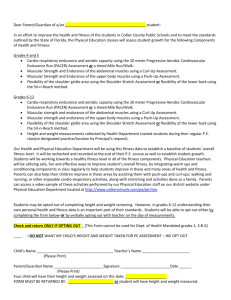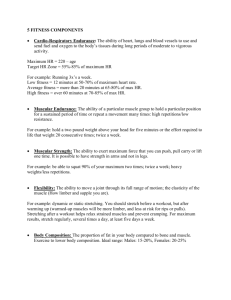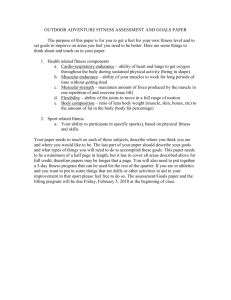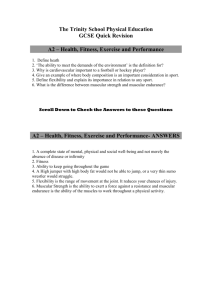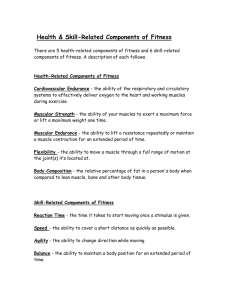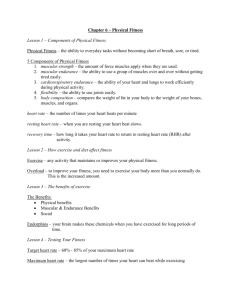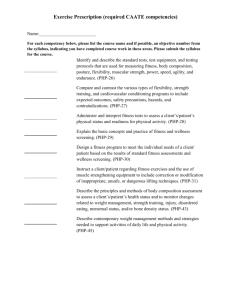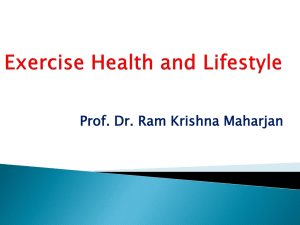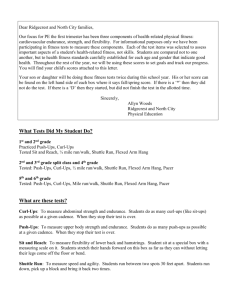To the substitute - Columbia High School
advertisement
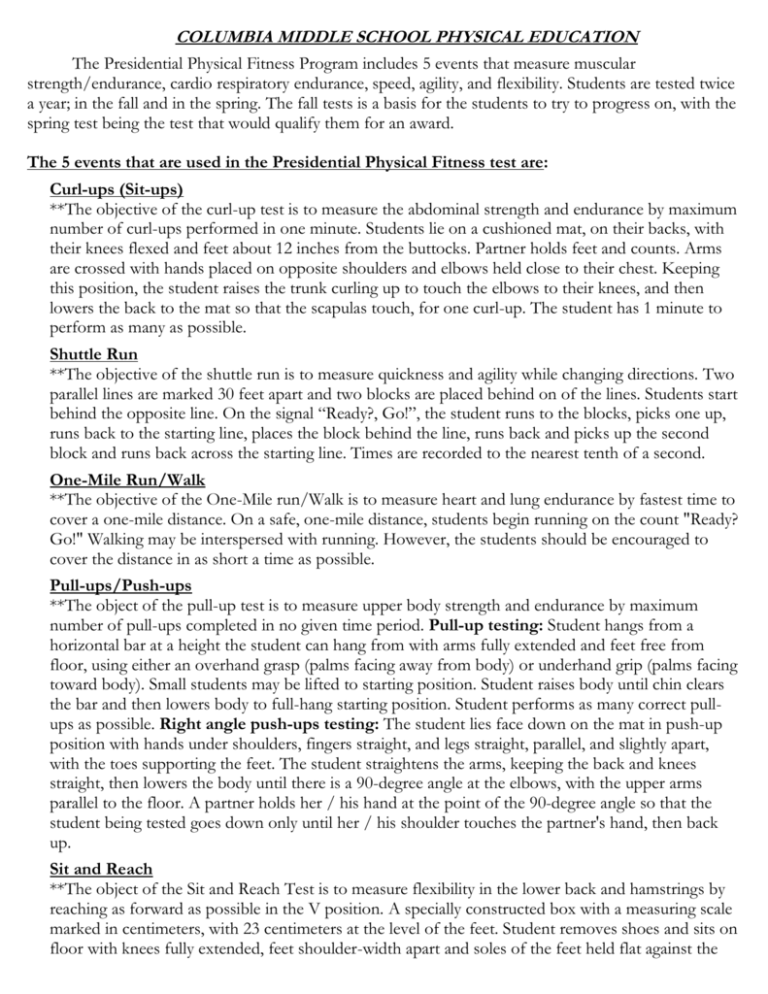
COLUMBIA MIDDLE SCHOOL PHYSICAL EDUCATION The Presidential Physical Fitness Program includes 5 events that measure muscular strength/endurance, cardio respiratory endurance, speed, agility, and flexibility. Students are tested twice a year; in the fall and in the spring. The fall tests is a basis for the students to try to progress on, with the spring test being the test that would qualify them for an award. The 5 events that are used in the Presidential Physical Fitness test are: Curl-ups (Sit-ups) **The objective of the curl-up test is to measure the abdominal strength and endurance by maximum number of curl-ups performed in one minute. Students lie on a cushioned mat, on their backs, with their knees flexed and feet about 12 inches from the buttocks. Partner holds feet and counts. Arms are crossed with hands placed on opposite shoulders and elbows held close to their chest. Keeping this position, the student raises the trunk curling up to touch the elbows to their knees, and then lowers the back to the mat so that the scapulas touch, for one curl-up. The student has 1 minute to perform as many as possible. Shuttle Run **The objective of the shuttle run is to measure quickness and agility while changing directions. Two parallel lines are marked 30 feet apart and two blocks are placed behind on of the lines. Students start behind the opposite line. On the signal “Ready?, Go!”, the student runs to the blocks, picks one up, runs back to the starting line, places the block behind the line, runs back and picks up the second block and runs back across the starting line. Times are recorded to the nearest tenth of a second. One-Mile Run/Walk **The objective of the One-Mile run/Walk is to measure heart and lung endurance by fastest time to cover a one-mile distance. On a safe, one-mile distance, students begin running on the count "Ready? Go!" Walking may be interspersed with running. However, the students should be encouraged to cover the distance in as short a time as possible. Pull-ups/Push-ups **The object of the pull-up test is to measure upper body strength and endurance by maximum number of pull-ups completed in no given time period. Pull-up testing: Student hangs from a horizontal bar at a height the student can hang from with arms fully extended and feet free from floor, using either an overhand grasp (palms facing away from body) or underhand grip (palms facing toward body). Small students may be lifted to starting position. Student raises body until chin clears the bar and then lowers body to full-hang starting position. Student performs as many correct pullups as possible. Right angle push-ups testing: The student lies face down on the mat in push-up position with hands under shoulders, fingers straight, and legs straight, parallel, and slightly apart, with the toes supporting the feet. The student straightens the arms, keeping the back and knees straight, then lowers the body until there is a 90-degree angle at the elbows, with the upper arms parallel to the floor. A partner holds her / his hand at the point of the 90-degree angle so that the student being tested goes down only until her / his shoulder touches the partner's hand, then back up. Sit and Reach **The object of the Sit and Reach Test is to measure flexibility in the lower back and hamstrings by reaching as forward as possible in the V position. A specially constructed box with a measuring scale marked in centimeters, with 23 centimeters at the level of the feet. Student removes shoes and sits on floor with knees fully extended, feet shoulder-width apart and soles of the feet held flat against the end of the box. With hands on top of each other, palms down, and legs held flat, student reaches along the measuring line as far as possible. After three practice reaches, the fourth reach is held while the distance is recorded. Qualifying standards for the Presidential Physical Fitness Test Qualifying standards for the National Physical Fitness Test
